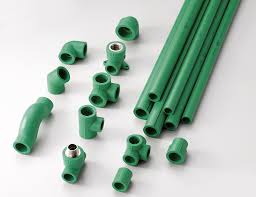Jul . 27, 2024 04:01 Back to list
High-Quality HDPE Pipe Manufacturing Facility for Durable and Reliable Water Supply Solutions
The Growth and Significance of HDPE Pipe Manufacturers
High-Density Polyethylene (HDPE) pipes have emerged as a critical component in various industries, including agriculture, construction, and water management. The proliferation of factories specializing in HDPE pipe production is a testament to the increasing demand for durable, efficient, and environmentally friendly piping solutions. This article delves into the significance of HDPE pipe companies, their manufacturing processes, and the advantages they offer to consumers and industries alike.
Understanding HDPE Pipes
HDPE is a thermoplastic polymer made from petroleum. It is known for its high strength-to-density ratio, making it ideal for piping systems that must endure extreme conditions. HDPE pipes are widely used for transporting water, gas, sewage, and industrial waste due to their corrosion resistance and longevity. Unlike traditional materials, such as steel or PVC, HDPE pipes can withstand high pressure and are less likely to burst or crack over time.
The Rise of HDPE Pipe Factories
The establishment of HDPE pipe manufacturing facilities has seen significant growth over the past few decades. This surge is largely driven by the increasing awareness of sustainable construction materials and the need for reliable infrastructure in developing regions. The global market for HDPE pipes continues to expand, fueled by urbanization, population growth, and infrastructure development projects.
Manufacturing these pipes involves several critical steps, including polymerization, extrusion, and quality testing. During polymerization, ethylene is converted into HDPE through a catalytic process. The resulting pellets are then melted and extruded into the desired pipe shape. Factories ensure stringent quality control measures are followed, involving rigorous testing for strength, flexibility, and resistance to environmental factors.
Advantages of HDPE Pipes
hdpe pipe company factory

1. Durability HDPE pipes are known for their remarkable resistance to stress fractures and impact. This durability ensures a longer lifespan, often exceeding 50 years, reducing replacement and maintenance costs over time.
2. Corrosion Resistance Unlike metallic pipes, HDPE does not corrode or rust, making it an excellent choice for environments prone to chemical exposure or moisture. This characteristic translates into fewer leaks and improved safety for various applications.
3. Environmental Impact HDPE pipe production is a more eco-friendly option compared to traditional materials. The manufacturing process generates lower carbon emissions, and HDPE is fully recyclable, contributing to a circular economy.
4. Flexibility and Lightweight The inherent flexibility of HDPE pipes allows for easier installation, even in challenging terrains. Moreover, their lightweight nature reduces transportation costs and simplifies handling.
5. Cost-Effectiveness Though the initial investment in HDPE pipes may be higher than alternatives, their longevity and low maintenance requirements lead to overall cost savings. This makes them a smart, economical choice for both public and private sector projects.
The Future of HDPE Pipe Manufacturing
As global awareness of climate change and resource conservation grows, the role of HDPE pipe manufacturers will become increasingly important. These companies are likely to invest more in sustainable practices, enhancing their production methods to minimize environmental impact further. Technological advancements, such as improved recycling processes and smart pipe technologies, could also revolutionize the industry, leading to smarter urban planning and more efficient water management systems.
In conclusion, HDPE pipe companies play a pivotal role in the development of modern infrastructure. Their products offer numerous advantages that cater to contemporary needs, ensuring safety, efficiency, and sustainability. As demand continues to rise, manufacturers are poised to adapt and innovate, contributing to a more sustainable future.
-
HDPE Compression Fittings Durable & Reliable PP Compression Fittings Supplier
NewsJun.24,2025
-
High-Quality PVC Borehole Pipes - Durable Pipes from Leading PVC Manufacturer
NewsJun.10,2025
-
High-Quality PVC Borehole Pipes Types of Pipes by Leading PVC Manufacturer
NewsJun.10,2025
-
Durable Screen Pipes & HDPE-PVC Connectors Expert Solutions
NewsJun.10,2025
-
Premium HDPE Conduit Pipes Durable & Corrosion-Resistant
NewsJun.10,2025
-
Premium HDPE Elbows Durable Corrosion-Resistant Piping Solutions
NewsJun.09,2025

